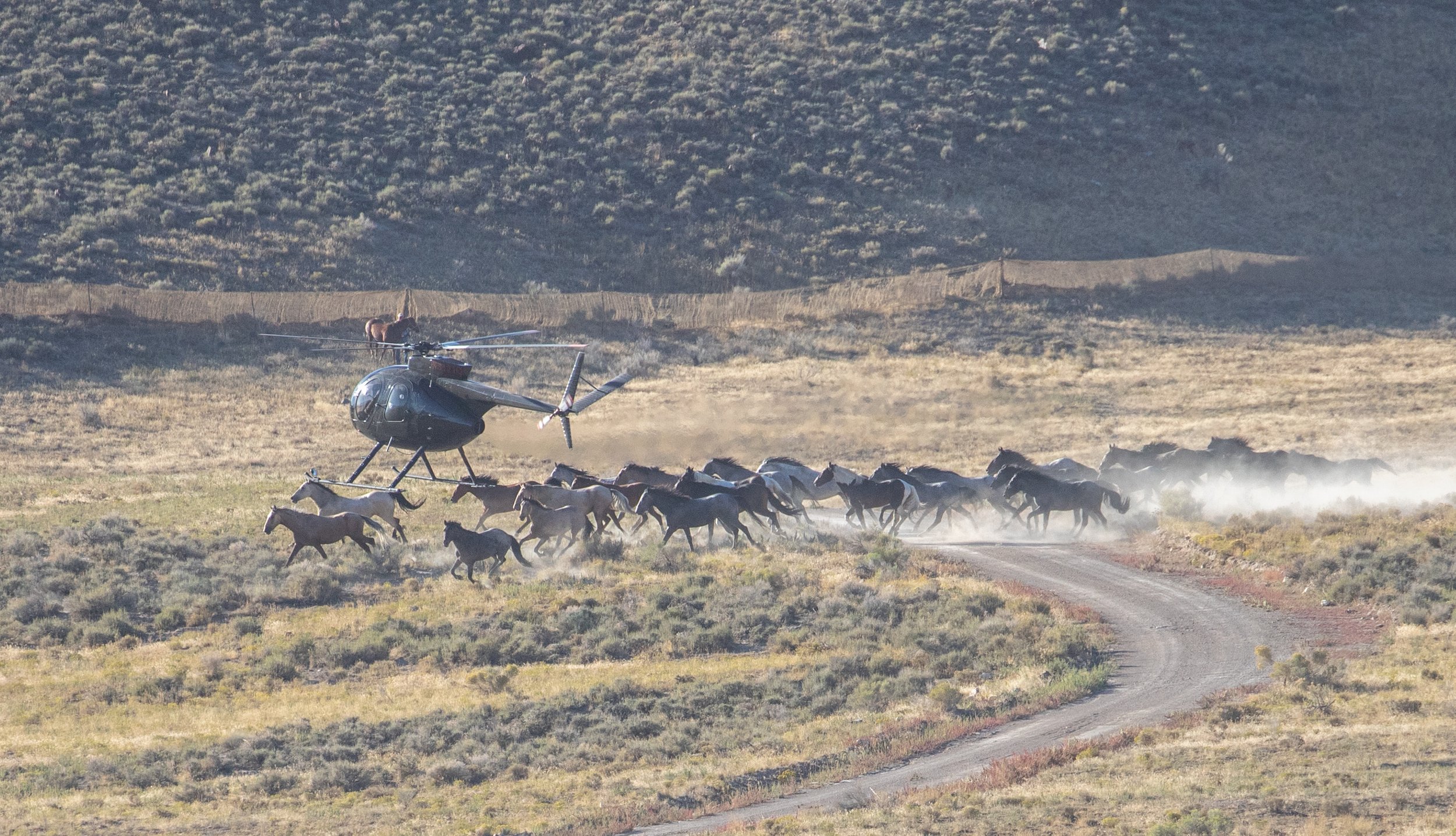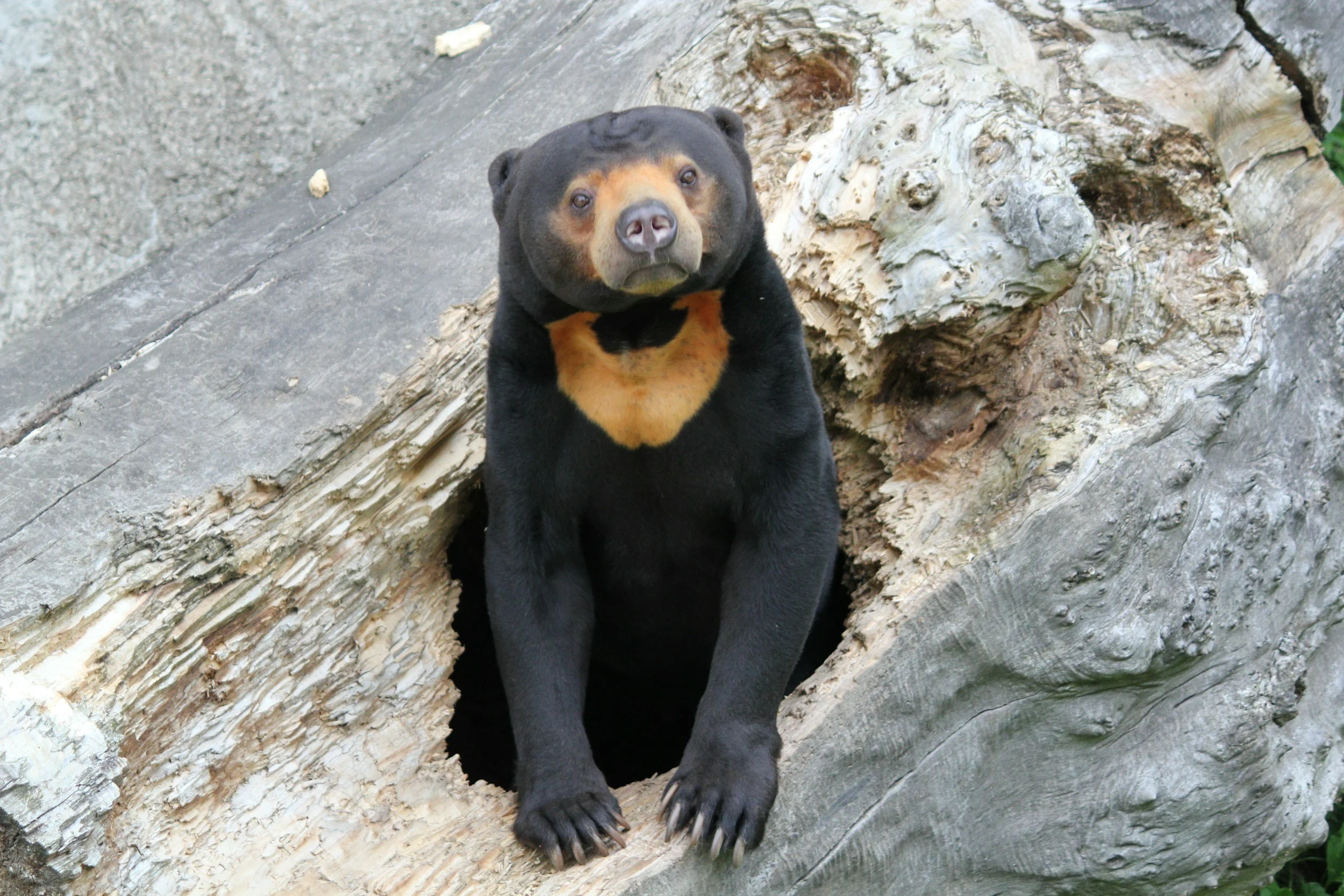Why America's Wild Horse Roundups Need to End Now
July has marked the official start of the Bureau of Land Management’s (B.L.M.) roundup of wild horses in the United States. Wild horses in the U.S. originate from the horses brought over by the Spanish conquistadors in the 1400s. More than 600 years later and the United States is now home to the largest variety of Equidae in the world. These animals were supposed to be protected under the Wild Free-Roaming Horse and Burro Act (WFRHBA) of 1971, and the B.L.M. was supposed to be the protectors. Unfortunately, and tragically, the B.L.M. has made it clear they intend to continue clearing out the horses by any means necessary.
Nationwide, there are an estimated 90,000 wild horses and burros, but it is the B.L.M. that determines what the ‘appropriate management level’ (AML) is for these herds. The critical issue is that the B.L.M. says that the AML is a mere 16,000 to 27,000 mustangs and burros. This is an outdated figure from half a century ago when the animals were so fast disappearing that the original WFRHBA of 1971 went into place. To hold these numbers as the standard limit is not only unrealistic, it is unscientific. The National Academy of Science, ironically commissioned by the B.L.M. themselves, stated that “How AMLs are established, monitored, and adjusted is not transparent to stakeholders, supported by scientific information, or amenable to adaptation with new information and environmental and social change."
A Competition for Space
A huge part of B.L.M.s impetus to limit wild horse and burro population is, naturally, money. When livestock farmers graze their animals on public lands, such as those managed by the B.L.M., they pay a $1.35 per animal unit month (AUM) as opposed to the $23.40 cost per animal to graze on private lands. Public land ranchers, thus, see wild horses as competition for space on these public lands. This is an outright fallacy because even with the current population of wild mustangs and burros, they are limited to 27 million acres, shared with livestock. Livestock by itself has an additional 155 million acres without any competition from wild horses. The ‘crisis’ therefore, is a constructed one.
The real crisis of space begins when the wild horses are captured by the B.L.M. There are currently more than 60,000 of these animals forced into overcrowded holding facilities. Since these facilities are not equipped to accommodate these numbers, let alone allow for the animals to thrive, animal welfare violations are plenty. These violations include inadequate vaccinations, insufficient access to hay, and, most tragic of all, preventable deaths. These wild horses are not only being killed through the roundups themselves, but through cruel mistreatment once they are captured, and there is no reason for it.
Credit: American Wild Horse Campaign
The Violence of Roundups
The roundup of these wild animals is brutal and inhumane. The B.L.M. uses helicopters, flying close to the ground, to herd the horses in a chaotic and frenzied way, where they are then loaded onto trailers, and trucked to the holding facilities. Neda DeMayo, executive director at the wild horse sanctuary Return to Freedom, states that horses are “social, sentient beings and they suffer when separated from family bands.” The chaotic roundup often does separate herds, and the foals are often unable to keep up, injuring themselves or even dying. The horses that suffer injuries in the roundup process are then euthanized by the B.L.M.
Since the roundups started again this July, there have already been 11 deaths of wild horses, including five foals, two mares that broke their necks, and four that were euthanized. The roundups only started in July, so while the B.L.M. claims that these deaths account for ‘less than 1 percent,’ it is still a troubling statistic. The American Wild Horse Campaign is reporting the daily events of the roundup here, including the number of horses captured, those that die, as well as the conditions of the roundup. Temperatures have gone up to 99 degrees Fahrenheit during these roundups in which horses and foals run for long periods of time.
A Different Path Forward
The violent roundups of wild horses and burros is not only cruel, it is overall ineffective as a means of population control. The removal of these wild animals leads to a phenomenon called “compensatory reproduction.” This is the natural increase in birth rates after a herd experiences a sudden plummet of population. The wild horses do pose an environmental challenge, as they require 5-10 gallons of water each day, and often eat plants from the root, limiting their regrowth for future grazing. This being said, what poses a far greater environmental challenge is the millions of cattle and sheep that graze this land.
“The livestock industry, of course, when they get fewer wild horses out of western public lands, they get more cheap grazing.”
If the issue were as simple as population control, there are far more effective and ethical options beyond the round up. Primarily is the use of a fertility control vaccine. Porcine Zona Pellucida, or PZP, has been used on species besides horses, and it prevents fertilization and pregnancy through the immune system rather than manipulating hormones that would impact the behavior of the animal. The vaccine is administered through a dart, and a single dose only costs $30, as opposed to the $1,600 it costs to put a horse in a holding site, not to mention the money spent on the roundups themselves.
The B.L.M. announced in April of 2023 that they had authorized two wild horse fertility control vaccine trials, but these vaccines are not on the cutting-edge, and the roundups continue despite the knowledge of fertility vaccines. B.L.M.’s continuation of using roundups while ignoring the science around other methods of population control only further demonstrates that the entire issue of wild horse roundup is a constructed narrative.
Erik Molvar, wildlife biologist and the executive director of the Western Watersheds Project, states that “the Bureau of Land Management is deeply corrupt and the livestock industry, of course, when they get fewer wild horses out of western public lands, they get more cheap grazing.” Molvar goes on to explain how it all comes back to money, saying “So, they [B.L.M.] laugh all the way to the bank and out in the Midwest when they're leasing land to wild horses for 60 dollars, an animal unit month, which is above market value. They're laughing all the way to the bank. So they're making money on both ends. Then there's this whole industry of helicopter wranglers contractors that are making millions to do these roundups. So everybody's got their hand in the till.”
Wild horses and burros are undoubtedly a scapegoat for the B.L.M. to continue to profit. These animals are supposed to be legally protected and yet they are living in poor conditions, suffering, and dying without the direction of science, let alone animal rights. It must stop now.
Take Action
You can learn more about the wild horse issue from expert Eric Molvar on his appearance on the Species Unite podcast here. You can also sign our petition here to end the inhumane roundup of wild horses. Species Unite encourages our readers to write letters to Secretary of the Interior Deb Haaland, urging her to stop these round-ups and work with the American Wild Horse Campaign to find sustainable solutions to protect these treasured and legally protected animals.
Written by Olivia Deming
Olivia is currently studying Political Science and Anthropology at Columbia University. She writes and edits for the Columbia Political Review, and is the President of the Women's Wrestling Club.
Want to write for Species Unite? We are looking for well-written stories focusing on content that informs, inspires, and engages our audience with topics surrounding animal rights.
We Have A Favor To Ask…
Species Unite amplifies well-researched solutions to some of the most abusive animal industries operating today.
At this crucial moment, with worldwide momentum for change building, it’s vital we share these animal-free solutions with the world - and we need your help.
We’re a nonprofit, and so to keep sharing these solutions, we’re relying on you - with your support, we can continue our essential work in growing a powerful community of animal advocates this year.






The potential transformation of the Oregon National Primate Research Center could offer freedom to thousands of monkeys used in biomedical research.